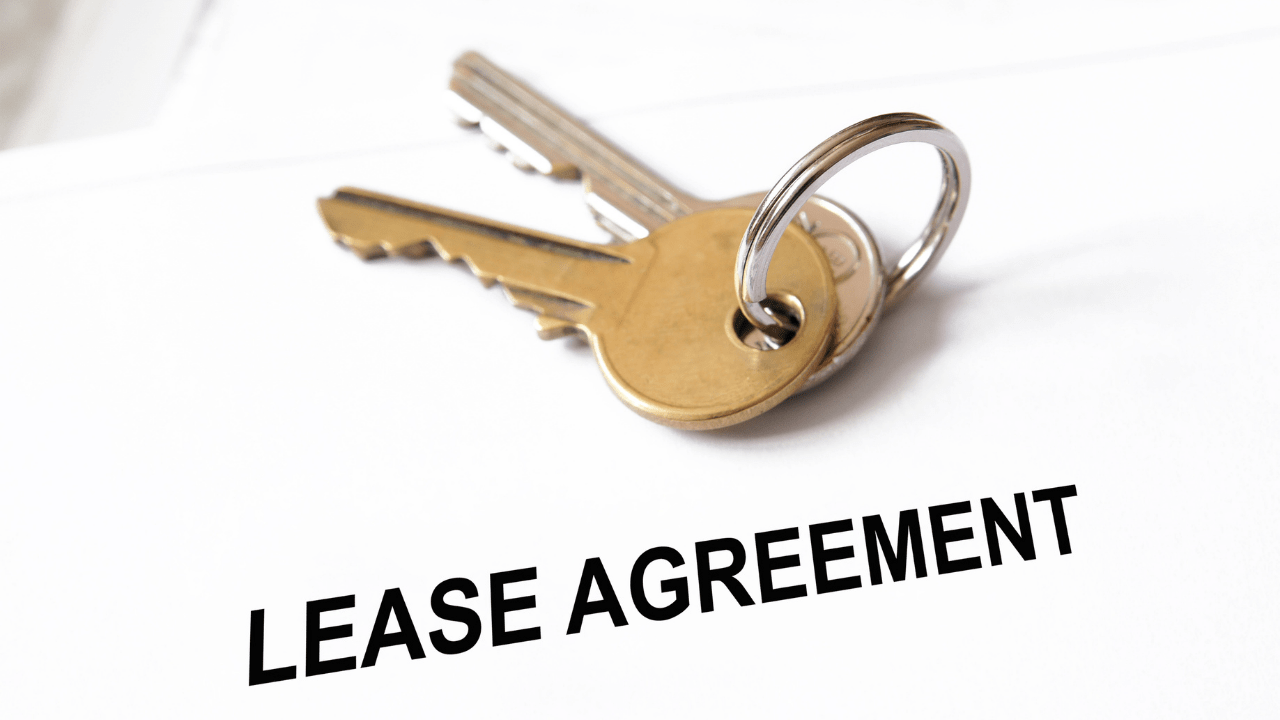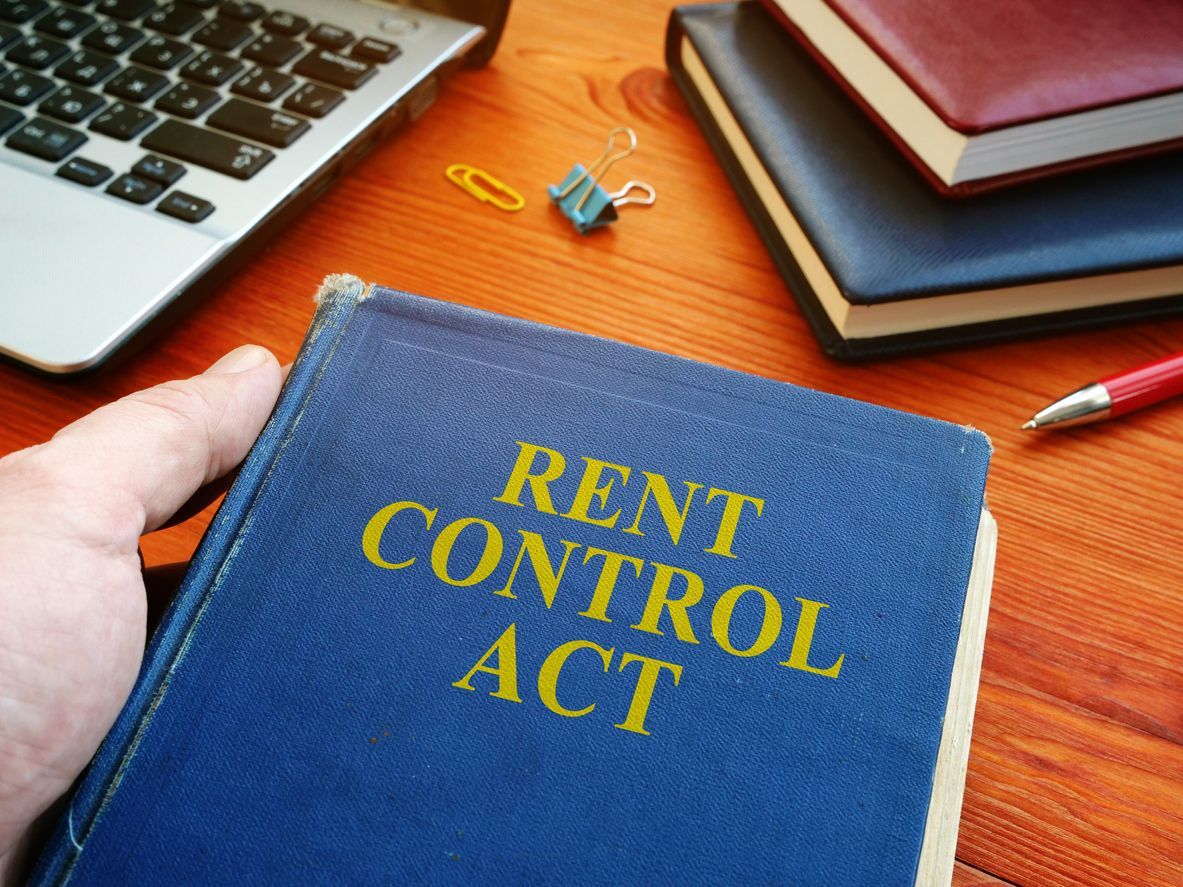BLOG
BLOG

By Florida PMServices
•
12 Apr, 2024
No question that one of the secrets for success in rental investment real estate is to minimize vacancies and turn overs. The longer a tenant stays in a property the better return on the investment. Ideally a tenant will rent a property once and stays there forever, renewing the lease agreement year over year. We all know this would be the goal in a perfect world but we also know is not reality and tenants will someday move out because of job relocations, purchasing a home or many other changes in life. When a tenant gives notice to move out at the end of the lease, most landlords want to put the property on the market right away to avoid or minimize vacant days in between tenants. Especially when the existing tenant is a good tenant that has taken care of the property and behaves professionally. Although this would be ideal that the existing tenants moves out on the last day of the month and the new tenant moves in a couple of days later, we are going to discuss why this is not a good practice and it may work against our investment goals. Here are some issues with trying to market and lease a property while occupied: If the landlord or agent is going to show the property entering the premises with tenant's permission and prior notice, a potential liability is created. You are showing the property basically to strangers that walk around the unit while tenant's personal belongings may be exposed or at an easy reach. What happens if the current tenant calls you later for example, stating that her new expensive gold watch and some jewelry , that was kept inside a drawer in her bedroom, disappeared. Or that the cell phone that he left charging in the kitchen is no longer there after your showed the property yesterday afternoon. Over the years we have heard, and thank God it has never happened to our company, that incidents like this have occurred. Our President, Gaston Reboredo, remembers that back in the early nineties the Realtor Association of Coral Gables (at the time) issued a warning to Realtors that there were two professional thieves posting as a couple wanting to lease expensive homes in the area and while one distracted the agent the other one went through drawers looking and stealing jewelry. So many things can happen and this liability is present when showing occupied units. maybe not the most important issue of the ones we are discussing today but one that must be taken into consideration. If on the contrary the current tenant is present at all showings, then it becomes a logistic problem. How do you show the property during business hours? Most likely your existing lease agreement gives you the ability to show the premises with sufficient notice to the tenant but you cannot force the current tenant to leave work to go to the unit for a showing. Then during the evenings and weekends how many times you bother the tenant? and how many times the tenant is not available at the precise time the prospective tenant wants to see the unit. The existing tenant may be running errands at the requested time of showing and the alternative time offered by the current tenant may not be good for the prospective tenant so the whole matter becomes a logistic nightmare. Let's say the current tenant is always available to show the unit, which is not reality, then another problem arises. Even the best tenant the most organized and clean person in the world when it comes time to moving a process of packing starts, putting things into boxes, stuff and boxes all over the house preparing for move out date. It is not easy to show a property while the current tenant is in the process of preparing to move out and it is very difficult for the property to be properly presented to the prospective tenant and for this prospective tenant to really see the unit and see it as his or her new home. Besides the issues discussed, even if we can deal with the liability stated in item 1 above and we have permission to access the unit at any time, we face another problem. Again even the best tenants that are Mr or Mrs Clean, have to run to work or school in the morning and if we are talking about families now they need to get the kids ready as well, not having enough time to have the premises in the best possible condition for a showing. It is not rare that you arrive to show a property to a prospective tenant and the pots and pans are dirty in the kitchen sink, the smell of a recently cooked meal is all over the place, towels on the bathroom floor and beds not made, not to mention the underwear that was unintentionally left somewhere. And if we are talking about evening showings in the middle of family dinner, kids doing homework or tenants watching TV, who by the way did not have enough time to prepare the home when they got back from work, we are looking at not ideal situations to present a property. Difficult to attract good new residents if the property cannot be showcased professionally and in the proper way. Also if your properties are not properly presented you will not only be wasting time in trying to rent them but your reputation as a landlord in the Realtor and Leasing community will be affected. Then we need to discuss other potential problems that may end up in legal liability to the landlord. Let's discuss a scenario where the current tenant was very cooperative, present at all showings and the home was pristine at every showing. Let's say the current tenant is leaving at the end of the month because of a job relocation out of the City, or another location in the same City, needing to rent a closer unit to the new employment location or because of the purchase of a home for the first time, achieving the dream of homeownership. Then you sign the lease with the new tenant to start the new tenancy during the first few days of the following month after current tenant vacates. What if the new place current tenant is moving to is not ready or the Home Owners Association required approval has not been issued and the move in date has to be delayed and current tenant cannot leave the premises before the start of the new lease with the new resident? what if the closing on the first home is delayed due to the numerous reasons real estate closings are delayed? In both cases current tenant will remain in the premises and yes you may be able to charge double rent by law or by lease agreement but the only way to force the current tenant to vacate is through an eviction process which may take in South Florida 30 to 45 days or more, depending in the area and if it is contested or not by the tenant. Meanwhile you have a contractual agreement with the new tenant to deliver the premises at certain date which now is going to be impossible but the new tenant already gave notice to vacate to that other landlord and is obliged to deliver the premises at the expiration of that rental agreement or face the same liability of double rent, eviction, etc. And it does not stop here, the new tenant may have arranged and paid deposits to move in companies, scheduled utility turn on services, requested mail forwarding, etc. You can see liability, legal costs and problems all over a situation like this, that happens very frequently. These are sonly ome of the problems all landlords face when trying to rent a property while tenant occupied, thinking they will be able to eliminate or significantly reduce the vacant time. In summary, best practices call for avoiding to show properties while rented to existing tenants. Plan properly, have your maintenance team ready to come in as soon as the existing tenant moves out and turn, in a couple of days or so, the property into rent ready condition so you can start marketing it to lease showcasing it in a clean, professional way, to attract good new residents in the shortest possible period of time . A property that is properly exposed to the rental market will rent faster, for more money and to better tenants with the least amount of problems to all parties. At the end you want a good new resident that pays rent on time, takes good care of the property and renews the rental agreement for as lomg as possible reducing the vacancy to the minimum on a long term basis.

By Gaston Reboredo
•
09 Feb, 2024
Introduction: Rent control, often touted as a solution to housing affordability, has been a contentious topic in policy debates for decades. The premise seems simple: cap rents to make housing more affordable for low-income individuals and families. However, the reality is far more complex. While the intentions behind rent control are noble, its implementation often leads to unintended consequences, exacerbating housing shortages, disincentivizing investment in housing, and ultimately failing to achieve its intended goals. Market Distortions: One of the fundamental flaws of rent control is its tendency to distort market dynamics. By artificially capping rents below market rates, it creates a mismatch between supply and demand. Landlords may find it unprofitable to maintain or invest in rental properties, leading to a decrease in the quality and quantity of available housing. Moreover, rent control discourages new construction, as developers are hesitant to invest in markets where their potential returns are limited by regulations. Allocation Inefficiency: Rent control often results in misallocation of housing units. Because tenants in rent-controlled units have little incentive to move, even when their housing needs change, they may occupy larger units than necessary or stay in prime locations longer than they otherwise would. This reduces mobility in the housing market, making it harder for new renters to find suitable accommodation, especially in high-demand areas. Disincentive to Investment: Another critical issue with rent control is its adverse impact on property investment. Landlords facing rent control regulations may be less inclined to maintain or upgrade their properties, as they cannot fully recoup their investments through higher rents. This leads to a decline in the overall quality of rental housing stock and can exacerbate issues such as poor maintenance and inadequate living conditions. Shortage of Rental Units: Rent control can contribute to housing shortages by reducing the incentive to build new rental units. Developers may choose to invest in other types of real estate or in regions without rent control regulations, further exacerbating housing affordability challenges. Additionally, some landlords may convert rental properties into condominiums or other forms of housing that are exempt from rent control, shrinking the supply of affordable rental units even further. Black Market and Informal Economy: In markets with strict rent control measures, a black market for housing often emerges, where landlords and tenants engage in illegal rent agreements outside of the regulated system. This undermines the intended goals of rent control while exposing tenants to exploitation and landlords to legal risks. Moreover, the informal economy may lead to a lack of transparency and accountability in rental transactions, making it difficult to address issues such as tenant rights and housing standards. Alternative Solutions: While rent control may seem like a quick fix to address housing affordability, alternative approaches offer more sustainable and effective solutions. One such approach is increasing the supply of affordable housing through incentives for developers, streamlined zoning regulations, and public-private partnerships. By encouraging the construction of new rental units and expanding affordable housing options, policymakers can address housing shortages without distorting market dynamics. Housing Subsidies and Vouchers: Another alternative to rent control is providing direct housing subsidies or vouchers to low-income individuals and families. These subsidies can be targeted to those most in need, allowing recipients to afford housing at market rates while maintaining the flexibility and efficiency of the rental market. Additionally, housing vouchers empower tenants to choose their housing according to their preferences and needs, promoting mobility and choice in the housing market. Tenant Protections and Regulations: While rent control may not be the most effective solution, tenant protections and regulations are still essential to ensure fair and equitable housing practices. Measures such as rent stabilization, eviction protections, and housing quality standards can help safeguard tenants' rights while maintaining a healthy and competitive rental market. By striking a balance between tenant protections and market incentives, policymakers can address housing affordability without the unintended consequences of rent control. Rent control, despite its good intentions, ultimately fails to address the root causes of housing affordability and often exacerbates existing problems in the rental market. By distorting market dynamics, discouraging investment, and contributing to housing shortages, rent control hinders rather than helps in the quest for affordable housing. Instead, policymakers should focus on alternative solutions such as increasing the supply of affordable housing, providing direct subsidies to those in need, and implementing tenant protections and regulations that promote fairness and efficiency in the rental market. By taking a comprehensive and balanced approach, we can create a housing system that works for everyone.

By Florida PMServices
•
16 Dec, 2023
Water damage is a common and potentially costly issue that tenants and renters need to be proactive about preventing in their rental properties. Whether you're living in an apartment, house, or condominium, taking steps to avoid water damage not only protects your personal belongings but also ensures a positive relationship with your landlord. In this blog, we'll explore practical tips and strategies to help tenants safeguard their homes from the damaging effects of water. Understand Your Lease Agreement: Before implementing any preventive measures, carefully review your lease agreement. Some landlords may have specific clauses or requirements related to water damage prevention. Understanding these terms will not only help you comply with the agreement but also demonstrate your commitment to maintaining the property. Regularly Check for Leaks: One of the most effective ways to prevent water damage is to regularly inspect your rental unit for leaks. Check faucets, pipes, and appliances for any signs of water leakage. Report even minor leaks to your landlord promptly, as they can escalate into more significant issues if left unaddressed. Check Appliances and understand how to use them: Appliances such as washing machines, dishwashers, and water heaters can be common sources of water damage. Regularly inspect these appliances for any leaks, and follow the manufacturer's maintenance recommendations. Ensure that water hoses and connections are secure, and see if they show signs of wear or damage. Be Mindful of Overflows: Prevent overflows by not overloading appliances or allowing sinks and bathtubs to overflow. Be cautious when using the dishwasher and washing machine, and avoid leaving them unattended while in use. This simple awareness can go a long way in preventing water damage. Protect Against Weather-Related Issues: Weather-related water damage is another concern for renters. Be proactive during extreme weather conditions. Keep windows and doors properly sealed to prevent leaks, and report any issues with the roof or windows to your landlord immediately. Proper Ventilation is Key: In areas prone to high humidity, such as bathrooms and kitchens, proper ventilation is crucial. Use exhaust fans or open windows to reduce humidity levels and prevent mold growth. Report Issues Promptly: If you notice any signs of water damage, whether it's a leak, discoloration, or a musty odor, report it to your landlord immediately. Swift action can prevent the problem from worsening and demonstrate your responsibility as a tenant. Safeguard Personal Belongings: Even with preventive measures in place, it's wise to safeguard your personal belongings. Store valuable items on elevated surfaces, especially in areas prone to flooding. Consider using waterproof containers for important documents and electronic devices. Obtain Renter's Insurance: It is a good practice to have renter's insurance to cover your personal property, Landlord's insurance policy does not cover any tenant belongings, property or tenant's liability Educate Yourself on Emergency Procedures: Lastly, familiarize yourself with emergency procedures in case water damage does occur. Know the location of shut-off valves for water and gas, as well as emergency contacts for your landlord or property management. It is very important to be able to shut off the main water valve to the house to avoid further damage. Being prepared can minimize the impact of water damage and facilitate a faster resolution. By taking proactive steps and being vigilant, tenants can significantly reduce the risk of water damage to their rental properties. Regular inspections, proper maintenance, and prompt reporting of issues are essential elements of a comprehensive water damage prevention strategy. Remember, a collaborative effort between tenants and landlords creates a positive living environment and ensures the longevity of the rental property.
Contact Us
office@properties.rent
Main Office:
2255 Glades Rd Suite 324A
Boca Raton Florida 33431
Broward County Branch:
2200 N Commerce Parkway Suite 200
Weston Florida 33326
Miami Dade County Branch
8333 NW 53rd Street Suite 450
Doral Florida 33166
EQUAL HOUSING OPPORTUNITY
Areas We Serve
|\]Boca Raton | Delray Beach | Parkland | Weston | Coral Springs | Fort Lauderdale | Pembroke Pines | Miramar | Miami | Doral

















